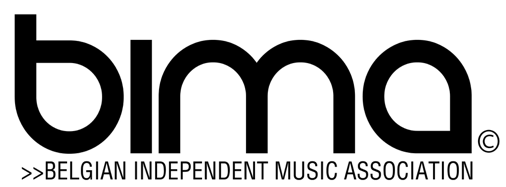100 Independent Artists to Watch 2025
RE_BIMAbe1065

IMPALA has unveiled its 100 Artists to Watch for 2025 list, an initiative in partnership with YouTube to highlight emerging talent from the European independent music scene. Selected for their innovation, commercial success and diversity, these artists represent a wide range of musical genres, from jazz and hip-hop to electronica and rock.
This year, four Belgian artists are among the talents to watch:
Aili (Eskimo Recordings, Belgium): A duo blending electro and Japanese influences, renowned for their experimental approach and unique energy on stage.
Bianca Steck (Unday Records/N.E.W.S., Belgium): Captivating indie-pop artist, blending atmospheric sounds with introspective lyrics.
Michel Bellens (La Quintessence MUSIC, Belgium): A promising singer and composer, he stands out for his sensitive songwriting and refined musical arrangements.
Red Sebastian (CNR Records, Belgium): Artist with eclectic influences, blending pop, soul and electro with a contemporary twist.
The initiative is supported by a new strategic partnership with Digizik, an agency specialising in music and entertainment, which will help to raise the profile of the programme and its winners.
IMPALA encourages the public to support these artists by listening to their music, attending their concerts and sharing their work on social networks. The aim of highlighting Europe’s independent music scene is to provide a platform for emerging talent to be heard internationally.
Nous existons Toujours
RE_BIMAbe1065

La BIMA rejoint le mouvement : Nous existons… toujours !
Nous, Bruxellois·es et organisations de la société civile, sommes en colère et impatient·es. Nous refusons la polarisation et la paralysie actuelles et nous attendons de nos responsables politiques qu’iels fassent de même. Notre travail dépasse les frontières linguistiques, communautaires et de diversité sociale. De la scène de théâtre au foyer pour sans chez-soi, du festival d’été à l’aide à domicile, nous nous engageons à coopérer encore plus, à créer davantage de ponts, à multiplier les interactions. Jour après jour.
Nous existons, toujours.
Wij bestaan… nog altijd !
Wij, Brusselaars en middenveldorganisaties, zijn kwaad en ongeduldig. We weigeren ons neer te leggen bij de huidige polarisatie en stilstand en verwachten van onze politici dat ze hetzelfde doen. Als middenveld werken we over veel grenzen heen: talen, gemeenschappen, sociale diversiteit, … Van het theaterpodium tot de thuislozenopvang, van het zomerfestival tot de thuiszorg, zetten we ons in voor meer samenwerking, meer bruggen, meer interactie. Elke dag opnieuw.
Wij bestaan, nog altijd.
WIN Benefits 2025 - C/O pop - Primavera - Reeperbahn
RE_BIMAbe1065

As a WIN network partner, BIMA members have access to a range of benefits throughout the year. Here are the new details and discounts for upcoming events.
New! Reeperbahn Festival (Hamburg, Germany)
Discounted rates to attend Reeperbahn Festival taking place from September 17-20 in Hamburg, Germany. These prices will be available until the start of the conference:
- Conference + festival ticket is available for 269€ net (plus VAT and ticketing fee) instead of the regular 419€ net.
- Conference only ticket available for 179€ net (plus VAT and ticketing fee) instead of the regular 289€ net.
- Find code and link in MyWIN
New! AIM Sync (Online)
25% discount to attend AIM Sync the UK’s leading global online sync licensing and brand partnerships conference and marketplace on 8th April 2025.
- Find code and link in MyWIN
New! Tallinn Music Week (Tallinn, Estonia)
IMPALA has secured a 10% discount for the whole WIN Community to attend Tallinn Music Week taking place from April 3-6 in Tallinn, Estonia.
- Open to association staff + all your members – See link in MyWIN
Access MyWIN to see current discounts and other benefits including c/o pop, jazzahead!, Primavera Pro, Rio2C, A2IM Indie Week and SoAlive Music Conference. Let us know if you need a new account or have trouble accessing it.
Let us know if you need a new account or have trouble accessing it.
Just drop an email to info(at)bima.be.
Spotify Responds to the Belgian Music Industry's Call: A First Step Toward Highlighting Local Talent
RE_BIMAbe1065

A Collective Letter for a Common Cause
The initiative began a few months ago when several Belgian music organizations united to send an open letter to Spotify. In this letter, they expressed deep concern about recent changes at Spotify Benelux, notably the dismissal of an editor with connections to the Belgian music scene and the disappearance of editorial playlists that showcased local talent.
BIMA and others organizations emphasized the need for greater attention to local repertoires, calling for the reinstatement of curators with an in-depth knowledge of the Belgian music landscape to serve as ambassadors for national talent.
Spotify Responds to the Belgian Music Industry’s Call: A First Step Toward Highlighting Local Talent
After this appeal, Spotify has responded positively by hiring a new curator dedicated to promoting Belgian talent. While this is an important first step, it should not be seen as a final victory. The Belgian music industry remains attentive and committed to ensuring that the collaboration with Spotify continues to improve moving forward.
A Promising Start
Ensuring that the curator understands the local scene is vital for the success of this initiative. The latest Ultratop rankings reveal that local and independent artists continue to struggle for visibility, with international acts dominating the charts.
Spotify and the Belgian music sector are embarking on a promising new chapter. The Belgian music industry will remain engaged and committed to ensuring that the relationship with Spotify continues to improve, striving for a more equitable representation of local music in the global streaming landscape.
Organigramme Culture & Économie en Belgique
RE_BIMAbe1065

Organigramme des nouveaux responsables pour la Culture et l’Économie en Belgique
- Niveau Fédéral
- Ministère de l’Économie
-
- David Clarinval (MR) – Vice-Premier Ministre et Ministre de l’Économie
- Niveau Régional
Région Wallonne
- Adrien Dolimont (MR) – Ministre-Président
Bruxelles-Capitale
- Formation du gouvernement en cours (pas encore finalisé)
Nous existons toujours ! Wij bestaan nog altijd ! La société civile bruxelloise veut des actes.
Het Brusselse middenveld wil actie.FRLe RABKO, aux côtés d’autres organisations de la société civile, lance l’appel « Nous existons, toujours. » L’absence de gouvernement bruxellois et les mesures fédérales annoncées fragilisent plus que jamais les organisations culturelles et sociales, ainsi que les habitant·es de Bruxelles.
NLRABKO lanceert samen met andere organisaties uit het middenveld de oproep “We bestaan, nog altijd.” Geen Brusselse regering, de aangekondige federale maatregelen : de huidige politieke context is catastrofaal voor culturele en sociale organisaties, en de Brusselaars.
Meer info >>>
Flandre
- Matthias Diependaele – Ministre-Président
- Niveau Communautaire
Fédération Wallonie-Bruxelles
- Elisabeth Degryse (Les Engagés) – Ministre-Présidente + Culture
- Virginie Cordier – Directrice adjointe Culture
- Bouchra Hbali – Conseillère Culture (Cabinet de la Ministre-Présidente)
- Organes de gouvernance culturelle en Fédération Wallonie-Bruxelles :
- Conseil Supérieur de la Culture (CSC)
- Chambres de concertation du CSC :
- Chambre de concertation des Arts vivants
- Chambre de concertation des Arts plastiques
- Chambre de concertation des Lettres et du Livre
- Chambre de concertation du Patrimoine culturel
- Chambre de concertation des Musiques :
- Fédérations représentées : ACC, ASSPROPRO, BIMA, BWMN, COURT-CIRCUIT, FACIR, FEAS, FeBeMe, FLIF, Forum de la Création Musicale, MUSEACT, SABAM
- Représentants des RTIP
- Membres consultatifs : représentants de la Commission des Musiques, Chambre des Écoles Supérieures des Arts
- Secrétariat : Service des Musiques
- Représentants du Cabinet
- Commissions d’avis (Avis motivés sur les décisions individuelles)
- CHAMBRE DE RECOURS
- Observatoire des politiques culturelles
- Administration générale de la Culture (AGC)
- CONSEIL SUPÉRIEUR DE L’ÉDUCATION PERMANENTE
- CONSEIL DE LA LANGUE FRANÇAISE, DES LANGUES RÉGIONALES ENDOGÈNES ET DES POLITIQUES
LINGUISTIQUES
Flandre
- Caroline Gennez (Vooruit) – Ministre de la Culture
- Organes de gouvernance culturels en Flandre :
- Departement Cultuur, Jeugd en Media
- Kunstenpunt
- Vlaams Audiovisueel Fonds (VAF)
- Socioculturele verenigingen
- Erfgoedorganisations
- Literatuur Vlaanderen
- MuziekOverleg:
- BRMA (Belgian Recorded Music Association)
- BIMA (Belgian Independent Music Association)
- BMPA (Belgian Music Publishers Association)
- BSCG (Belgian Screen Composers Guild)
- BWMN (Belgian World Music Network)
- Clubcircuit (koepel van Vlaamse muziekclubs en concertorganisatoren)
- ComAV (Componisten Archipel)
- FMiV (Federatie van Muziekfestivals in Vlaanderen)
- Muziekgilde
- Koor&Stem
- Kunstenpunt
- MMaF (Muziek Managers Federatie)
- MuziekMozaïek
- oKo (Overleg Kunstenorganisaties)
- PlayRight
- Sabam
- VI.BE
- VLAMO
- VLAPO (Vlaamse Podiumartiesten)
- FFN (Flanders Folk Network)
- Cult! (Netwerk Cultuurhuizen)
- Responsables liés aux médias et politiques culturelles
Médias (Région Wallonne)
- Jacqueline Galant (MR) – Ministre des Médias
- Christophe Maes – Directeur adjoint Sports & Média
- Clément Tranchant – Conseiller Média
- Jérémie Ulens – Conseiller Média
Médias (Flandre)
- Cieltje Van Achter – Ministre des Médias
AI: Make sure that your rights are reserved!
RE_BIMAbe1065

-
-
Label members are strongly encouraged to reserve their rights by following our straightforward instructions below.
-
All members should let us know once new declarations have been published, and if the labels who have declared would agree to their declarations being published on the repository of declarations set up by IFPI here, which we would also encourage you to do.
-
This 26th of february, Merlin Opposes UK Government’s Proposed Copyright & AI Reforms, Calls for Stronger Protections for Independent Music
Reserving your rights – Straightforward instructions
The first basic step you should take is to declare on your company website that your rights are reserved.
You can simply copy/paste the draft text which IMPALA have prepared for you onto your label website (it can be on a dedicated page, with a simple link to it on the homepage).
This is a simple step you should take to increase the protection of your rights from unauthorised use for the purposes of AI training or machine learning.
BIMA part of WIN Board members Europe
RE_BIMAbe1065

Geert De Blaere (BIMA president) renew is participation on the board members Europe of the Worldwide Independent Network (WIN), which held its first meeting of the year on January 23, 2025. As a global organization dedicated to supporting the independent music sector, WIN continues its commitment to enhancing the value of recorded music, fostering collaboration among its members, and advocating for fairer market conditions for independent labels and artists.
This year, WIN will focus on expanding its network into new territories and strengthening the presence of independent trade associations in key music markets. Key priorities include ensuring that more value is returned to independent creators, developing a fair and functional licensing framework for artificial intelligence, and promoting transparency and efficiency in rights management by streaming platforms and collecting societies.
BIMA is honored to contribute to WIN’s mission and collaborate with industry leaders to protect and empower the independent music sector on a global scale.
WIN Board Members for 2025
North America
- Gord Dimitrieff (Aporia Records, Canada)
- Jason Peterson (GoDigital Media Group, USA)
- Richard Burgess (A2IM, USA)
- Tony Kiewel (Sub Pop, USA)
- Zena White (Partisan Records, USA)
- Observer: Ian Harrison (Hopeless Records, USA)
Latin America
- Francisca Sandoval (IMICHILE, Chile)
- Felippe Llerena (Nikita Music / ABMI, Brazil)
- Observer: Cecilia Crespo (ASIAr, Argentina)
Europe
- Dario Draštata (Dallas Records, Croatia)
- Gee Davy (AIM, UK)
- Geert De Blaere (N.E.W.S., Belgium)
- Jörg Heidemann (VUT, Germany)
- Mark Kitcatt (Everlasting Records, Spain)
- Observer: Helen Smith (IMPALA, Europe)
Asia
- Marty Ro (Sound Republica / LIAK, South Korea)
- Takuya Yamazaki (IMCJ, Japan)
- Observer: Sridhar Swaminathan (SIMCA, India)
Australasia
- Maria Amato (AIR, Australia)
- Observer: Dylan Pellett (IMNZ, New Zealand)
European Commission study on discoverability - EU survey
RE_BIMAbe1065

With this study the European Commission puts cultural diversity in front and centre, to learn more on how people discover cultural content online and about the impact of algorithmic recommendations and of other technologies on exposure to cultural and linguistic richness.
The study aims to understand the availability and accessibility of cultural content online and how content prioritisation practices, algorithm recommendations, and curation strategies influence exposure to cultural and linguistic diversity.
In the Belgian music sector, discoverability on streaming platforms is crucial to ensuring a diverse and thriving industry. Belgian Independent Music Association (BIMA) actively advocates for better visibility of local and independent artists. Without fair access to recommendation algorithms and playlist placements, independent music struggles to reach audiences, limiting cultural diversity and market opportunities. BIMA regularly encourages policymakers and platforms to implement measures that promote Belgian artists, ensuring a balanced and competitive digital music ecosystem.
The following survey is one important step in this study. We strongly hope that, in light of the conclusions of this study, concrete solutions will be implemented to significantly improve the visibility and opportunities for independent artists.
The study began in the summer of 2024 and is expected to conclude in September 2025.
Appel à candidatures - Commission des Musiques // FWB
RE_BIMAbe1065

LA FWB lance un appel aux professionnels, professionnelles ou experts, expertes du secteur musicale pour reconstituer ses organes consultatifs. Les candidatures sont ouvertes jusqu’au 6 mars 2025.
Par ailleurs, la BIMA siège à la Chambre des Concertations Musiques pour y faire entendre la voix de ses membres. Retrouver ici l’organigramme complet du Conseil Supérier de la Culture.
Dans le cadre du présent appel, l’Administration générale de la Culture recherche :
1° huit experts effectifs et huit suppléants en musique classique, en particulier
dans l’exercice d’une activité d’interprète, de programmateur, de critique
musical ou d’enseignant de la musique classique ;
2° huit experts effectifs et huit suppléants en musique contemporaine, en particulier
dans l’exercice d’une activité d’interprète, de programmateur, de compositeur, de
critique musical ou d’enseignant de musique contemporaine, dont au moins deux
experts pour chacune des activités suivantes :
a) musique purement instrumentale et vocale ;
b) musique mixte ;
c) musique électroacoustique et acousmatique ;
3° quatorze experts effectifs et quatorze suppléants en musiques actuelles, en
particulier dans l’exercice d’une activité d’interprète, de programmateur, de
compositeur, de critique musical ou d’enseignant de musiques actuelles, dont
au moins deux experts pour chacune des activités suivantes :
a) jazz ;
b) chanson, en ce compris la chanson pour enfants ;
c) musiques traditionnelles ou du monde ;
d) pop/rock ;
e) hip hop ;
f) musiques électroniques.
Le nombre de postes à pourvoir, les profils recherchés et les modalités de candidatures figurent dans l’appel complet (.pdf).
Ne tardez pas, les candidatures peuvent être déposées jusqu’au jeudi 6 mars 2025 au plus tard.
Strategic Primer : Tik Tok & Instragram
RE_BIMAbe1065

Two new Strategic Primers, in partnership with Music Ally & IMPALA are out and available.
One focuses on TikTok and covers everything you need to know to make the most of the platform: from its role in the market to marketing best practices, tools and opportunities as well as strategies for independent labels. The report also refers to current issues surrounding TikTok, including in relation to the community of independents.
Another one focusses on Instagram and explores the platform’s presence in the market as well as effective marketing strategies, and how independent labels can leverage its potential.
Other Primers on YouTube, Spotify, Amazon Music and Apple Music are also available for members.
Just drop an email to info(at)bima.be to get your copy of these essential guide.
Thx to IMPALA, MERLIN & Musically!
